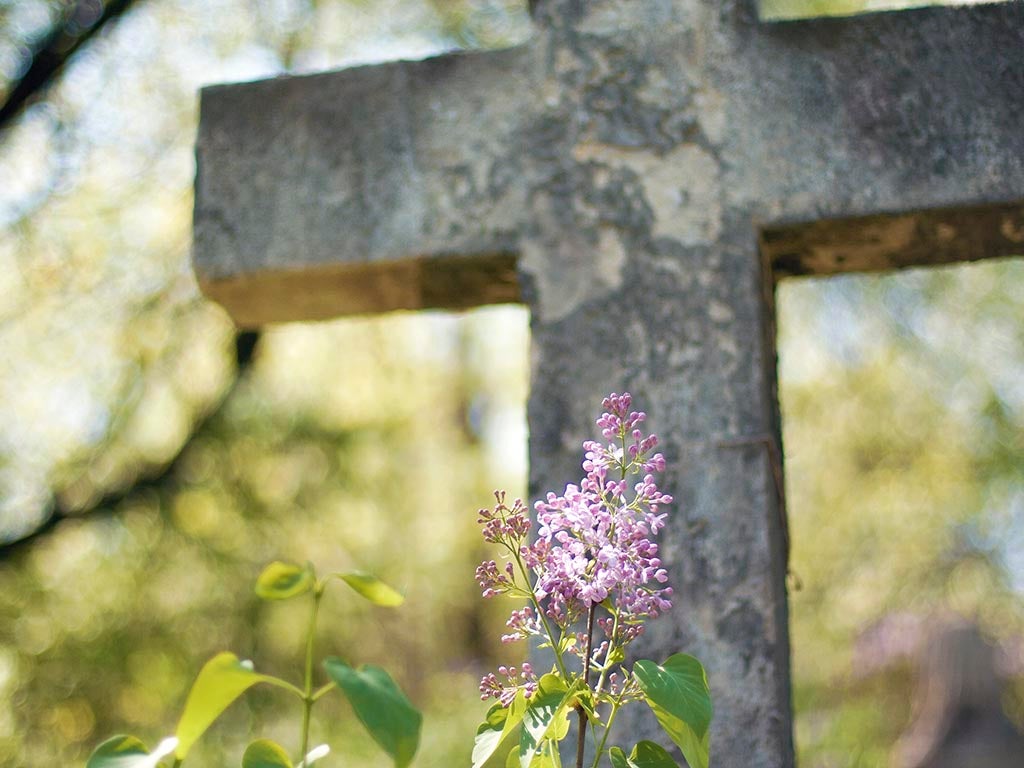Home burials: Why let strangers care for the ones you love?
Burying a family member in the garden can be a much more personal experience than the traditional funeral. It can also help those who want to avoid being taken advantage of financially in the time of grieving

The revelation this week about the home burial of Kirsty Allsopp’s mother came as no surprise to us agents of change at the Natural Death Centre charity. Her mother's request for a 'stranger free', private, swift, home interment, expresses an instinctive desire that I hear frequently. The public are now increasingly aware that they have choices, power and knowledge to retake control of how our bodies are treated and cared for after death.
The internet has made information available that is generally suppressed by the industry and misunderstood by many gate-keeping professionals, including medics, registrars and civil servants. In the UK we are very lucky to actually have such freedoms - most other countries are tightly controlled by the state, industry and Church. I am contacted by people from all over Europe and beyond who cannot believe that we are so free to choose and control our funerals. Oh how I love being British.
Many people are also starting to question why we automatically hand over the care of the bodies of those who we have loved and cuddled to strangers, when we can carry out that final act of love and care for them ourselves, if we so choose. I hope Kirsty and her family are greatly comforted by their achievement.
That's right, you do not need permission from anyone to bury a human on your property. The landed gentry have been doing it for centuries, now a bit of equality and downsizing is leading even those in terraced properties to bury their relatives in gardens that they may have loved and tended for many years. You can't bury lots of people, that would change the use of the property to a cemetery and require planning permission. So a garden must stay a garden and a paddock a paddock.
It is not necessarily the most sensible thing to do, many people still have an irrational fear of death; probably overly stimulated by horror movies. These necrophobes may well avoid buying a property with a permanent resident. And if a vendor fails to declare the presence of a body or two, then the new home owner would have good justification to successfully obtain permission to exhume, maybe even suing the vendor for the cost of that gruesome process. However, these properties do sell. I often wonder, if we all called in the archaeologists, how many of us would discover we have Saxon or Roman remains under our homes? Would that then bother us?
Hundreds of families contact us at the Natural Death Centre every year, looking for reassurance and home burial advice. They tend to be on the landed gentry side of society; farmers, small holders and those owning larger gardens. We provide them with a free grave digging PDF and also a sample register. It is this register plus a map that they add to the deeds which will hopefully let future generations know who is where, helping them to avoid putting a new swimming pool in the wrong place.
As long as the death is legitimate, registered in the normal way and guidelines issued by the Environment Agency are followed, there should be no problems. No outstanding mortgage is pretty important, too. The EA's guidelines are simply to protect groundwater. 10 metres from ditches and drains, and 30 from running and standing water is a good rule of thumb. Obviously not burying someone in a waterlogged bog is helpful, and not near a borehole or well is pretty obvious.
Worries about access to pay your respects if the property is sold is also worth considering.
Would I do it? Probably, but then I have a family plot in an outstandingly beautiful natural burial site to occupy. My Dad is already there and it was a flippant remark he made 16 years ago about being buried in his orchard that led me into my current vocation. The NDC charity helps tens of thousands of families every year. Home burial is a minor issue, what most want help with is how to avoid the traditional funeral and its associated expenses. Increasing numbers want to organise a funeral themselves and take their dead direct to a crematorium. They sometimes want to buy their own coffin or find a natural burial site and let someone else worry about keeping a burial register. Some people just want to find an undertaker who will listen to them and not bully them into services they don't want, need or can afford. And some want to do the old fashioned thing and keep their dead at home in the days leading up to the funeral.
Every bereaved family has varying needs and expresses their grief differently. These widening choices reflect both our culturally diverse population and the increasing knowledge of what is actually possible. Nobody should criticise families who escape the grip of the traditional, rushed, formulaic trip to the crematorium. A good funeral and carrying out the deceased's requests is all part of the healing process.
Rosie Inman-Cook manages the The Natural Death Centre and the Association of Natural Burial Grounds 01962 712690 contact@naturaldeath.org.uk
Subscribe to Independent Premium to bookmark this article
Want to bookmark your favourite articles and stories to read or reference later? Start your Independent Premium subscription today.

Join our commenting forum
Join thought-provoking conversations, follow other Independent readers and see their replies